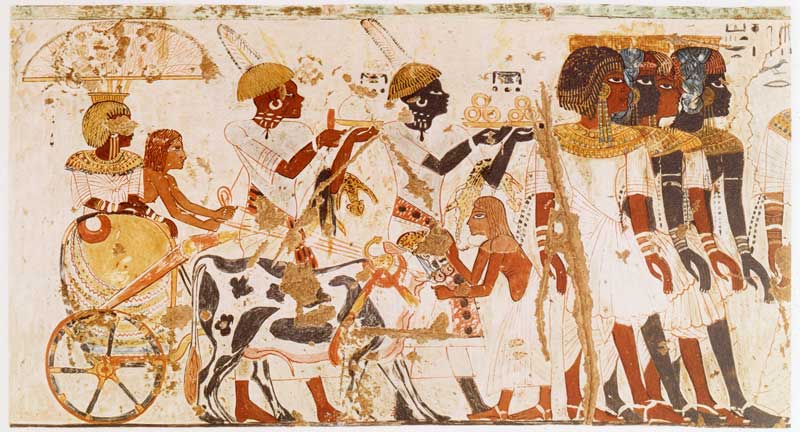The peoples that formed the mighty Assyrian Empire clings to their culture in northern Iraq, Syria, and Türkiye (formerly known as Turkey). “Assyrian” is a broad category of Aramaic-speaking Christians since the earliest days of Christianity with three main branches today that all have different identities, which have led to difficulties in presenting a unified effort like their neighbor and sometimes rival the Kurdish people in northern Iraq.
The Nestorians are the strongest advocates for Assyrian nationalism (Assyrianism) and claims the Assyrian Empire as heritage. Their cooperation with the British Mandate of Iraq had drawn animosity with other local ethnicities and faced numerous purges. In the face of these purges, many Nestorians fled, leaving another Assyrian branch, the Chaldeans, as the largest Christian group in Iraq. Nestorians viewed the Chaldeans as traitors for siding with Arabs and/or Catholics, while Chaldeans view Nestorians as blasphemous for having pagan elements in their interpretation of Christianity. Chaldeans tended to side with the Iraqi government throughout its history such as backing Saddam Hussein during the US invasion. Chaldeans seemed to escape some persecutions due to them self-identifying as ethnically Arab and cooperating with instead of resisting the various Iraqi regimes. (Boháč 70)

Chaldean Catholic Church in Baghdad
Wikimedia Commons contributors, “File:Assyrian Church.png,” Wikimedia Commons, https://commons.wikimedia.org/w/index.php?title=File:Assyrian_Church.png&oldid=805606185 (accessed November 10, 2023).
The third branch, the Syriacs, are more dispersed, such as throughout Syria and Türkiye. Their ancestral language turoyo is slowing being replaced in usage, even in religious contexts, by Arabic in Iraq and Syria and Turkish in Türkiye. They were even banned from teaching their language in Türkiye. Syriacs are more divided over identity, with some supporting Assyrianism like Nestorians while others supporting a more inclusive concept of Arameanism. (Boháč 71)

Map of the Assyrian Genocide by the Ottoman Empire and some Kurkish forces that coincided with the Armenian Genocide as well as Ottoman killing of other ethnicities
Wikimedia Commons contributors, “File:Assyrian genocide map-pt.svg,” Wikimedia Commons, https://commons.wikimedia.org/w/index.php?title=File:Assyrian_genocide_map-pt.svg&oldid=805612179 (accessed November 10, 2023)
The disunity among the different groups of Assyrians made them less able to confront the strife that’s torn across Iraq in the recent decades. According to minorityrights.org, official Iraqi statistics consider them to be Arabs, which already delegitimizes Assyrians, who by their sheer longevity in the region ought to at least be considered indigenous, as not a unique ethnic minority. First most of the Assyrian Churches were wiped out by the Mongol invasion, then when European colonists favored them due to their Christianity, Assyrians began to face persecution from local Muslims, which became regular occurrences in the twentieth century, notably by the Saddam Hussein regime. The ongoing conflicts in Iraq following the US invasion that toppled Saddam Hussein struck Assyrian communities even harder. In 2011, Assyrians represented more than half of new UNHCR-registered Iraqi refugees in both Türkiye and Lebanon, despite Assyrians representing only 3% of the pre-war Iraqi population. The rise of ISIS displaced many from traditional Assyrian regions such as Mosul. Many fled to areas held by the Kurdistan Regional Government, where despite not facing the threat of physical harm, Assyrian political activities continued to be suppressed by the Kurds.
Beyond physical persecution, Assyrians are also suffering from suppressions of their language. According to unpo.org, Saddam Hussein had revoked an earlier decree (Decree 251) granting cultural rights to Assyrians and as a result suppressed Assyrian schools from teaching Syriac, having Arabic be taught instead. Assyrian dialects continue to be under threat. UNESCO lists Assyrian or Aramaic as a “definitely endangered” language, with approximately only 240,000 speakers total.
Sources:
Artur Boháč. “Assyrian Ethnic Identity in a Globalizing World.” In Beyond Globalisation: Exploring the Limits of Globalisation in the Regional Context (conference proceedings), 67-72. Ostrava: University of Ostrava Czech Republic, 2010. http://conference.osu.eu/globalization/publ/08-bohac.pdf.
https://minorityrights.org/minorities/assyrians-2/
https://unpo.org/members/7859












